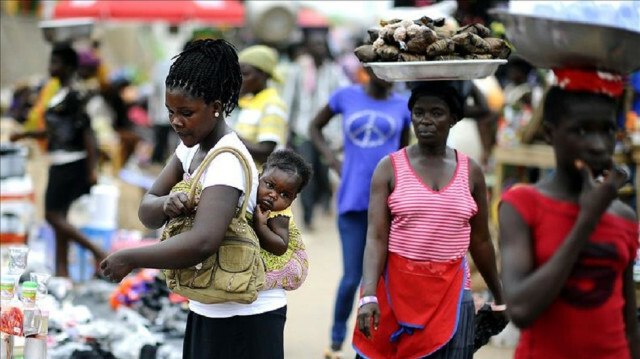
Legally sold game meat reduces poaching, is safe for human consumption with proper safety measures, say officials
Public health experts in Tanzania have thrown their support behind a government move authorizing the sale of game meat, accompanied by strict regulations to prevent the spread of potentially deadly pathogens from slaughtered animals.
More than 2,000 tons of illegal game meat worth around $50 million are seized annually in the country, official data show.
In a bid to address poaching, Tanzanian authorities last year approved the sale of game meat under special rules which require licensed operators to slaughter animals at special abattoirs.
This April, the World Health Organization (WHO) urged countries to suspend the sale of live wild animals at food markets – the source of more than 70% of emerging infectious diseases in humans, and the suspected culprit behind the ongoing COVID-19 pandemic, which has killed some 5.24 million people worldwide, and counting.
-Safety measures
Deus Kitapondya, a public health expert based in coastal Dar es Salaam, the most populous city in the East African country, urged regulators to pin down safety measures to deter the possible spread of deadly bacteria to humans.
“It is important to understand the so-called zoonosis, where a disease affecting wild animals can be transmitted to humans,” he told Anadolu Agency.
According to Kitapondya, selling and eating wildlife is fine as long as strict public health measures and regulations are followed when slaughtering wild animals.
“Slaughtered animals must be screened for any illness before the meat is sold to the public,” he said.
He called on Tanzanian authorities to establish specific laws and policies on slaughtered wildlife.
“People grew up eating wild meat for their entire life. It’s a source of protein,” Kitapondya said.
He said legally sold game meat would reduce poaching and the encroachment of wildlife habitats.
“When wildlife is sold, the price of beef will go down, and people will get badly needed protein,” he said.
Kitapondya called on the government to authorize individuals to own private zoos where they can harvest wildlife, much like livestock.
-Deadly contagion
While the outbreak of the coronavirus pandemic has highlighted the danger of human consumption of wild animals, experts say some legal and administrative loopholes have allowed potentially dangerous species to be harvested.
When wild animals are kept in cages and slaughtered and dressed in open market areas, these areas become contaminated with body fluids and feces, increasing the risk of transmission of pathogens to humans, the WHO warned.
Studies mapping human diseases that come from animals like tuberculosis, AIDS, bird flu, or Rift Valley fever have found that just 13 such diseases are responsible for 2.4 billion cases of human illness worldwide and 2.2 million deaths each year.
Scientists say the majority of infections and deaths from the so-called zoonotic diseases are in poor- or middle-income countries.
And the growing demand for livestock products in Tanzania means contamination is likely to happen, researchers warned.
“Cyst-causing tapeworms in particular present a major threat to human and animal health,” said Mary Nyalu, a senior veterinary epidemiologist based in the northern town of Moshi.
-Disease burden
According to a recent study done by the International Livestock Research Institute to map livestock keeping and diseases humans get from animals, Tanzania is among the top 20 geographical hotspots with the highest zoonotic disease burdens, with both widespread illness and death.
Other countries are Ethiopia, Nigeria, and India.
Despite the threat of spreading deadly bacteria, the bush meat trade has gained traction in Tanzania, with top restaurants including game meat on their menus.
Mabula Nyanda, acting conservation commissioner for the Tanzania Wildlife Management Authority (TAWA), said bush meat is safe to eat, adding that strict food safety standards are used before animals are slaughtered for consumption.
“We have imposed strict regulations and effective food hygiene practices on slaughtered wild animals," he told Anadolu Agency.
Othman Bhoke, one of the authorized butchers, said demand for game meat is big.
“We sell a wide range of animal meat including buffalo, ostrich, gazelle, and antelope,” he said.
According to Bhoke, the price per kilo starts at 5,000 Tanzanian shillings (around $2).
On a humid Saturday morning at an open restaurant adjacent to the Pande Game Reserve on the outskirts of Dar es Salaam, the aroma of wild meat left sizzling on a charcoal stove for slow roasting wafted by as diners sat on wooden chairs waiting for their portions of gazelle meat to wash it down with beer or red wine.
“It is very delicious and irresistibly tasty. You can’t compare it with beef,” said Caesar Masawe.
According to Masawe, he has been eating wildlife meat all his life, and he doesn’t see any problem.
Kelvin Kavishe, a cook at the Mabwepande game reserve restaurant, said roast game meat ranges from 5,000 to 15,000 Tanzanian shillings ($2 to $6.50) per portion.
“So many people come here on weekends to place their orders,” he said.

